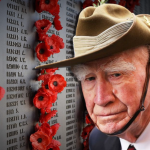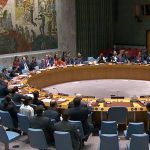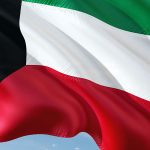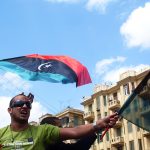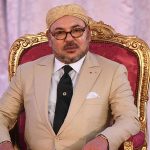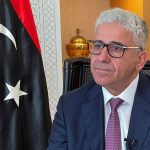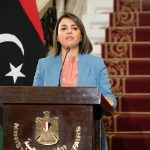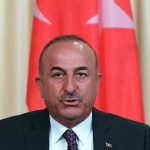On May 28, the United Nations invites Syrian opponents to negotiations on the country’s constitution
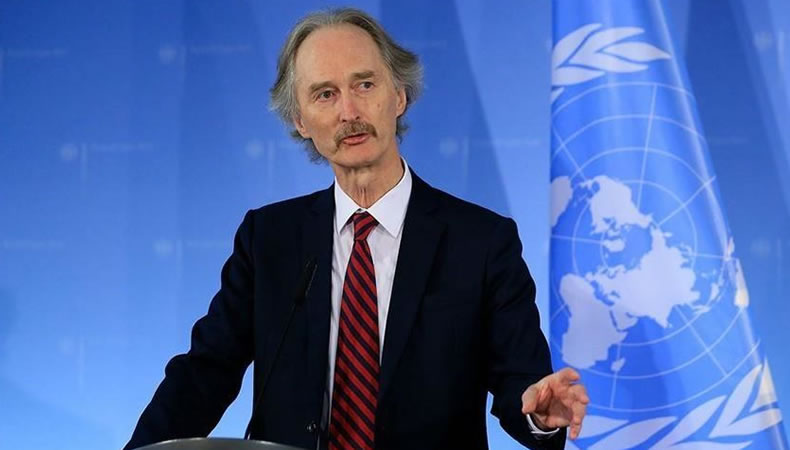
United Nations–The United Nations Special Envoy for Syria stated Tuesday that he has extended invitations to the Syrian government and opposition for an eighth round of negotiations, which will begin in late May and attempt to revise the country’s constitution.
According to Geir Pedersen, an agreement on a rewritten constitution might help bring the 11-year battle to a political conclusion. The Syrian Constitutional Committee’s seventh session finished on March 25, he stated, with delegations providing “at least some amendments to some of the documents submitted.”
Pedersen stated that deputy special envoy Khawla Matar followed up with visits to Damascus and Istanbul to continue negotiations with the committee’s co-chairs, and that he had sent out invitations for the eighth session, which will take place in Geneva from May 28 to June 3. The drafting process would only forward if the committee’s work is “guided by a spirit of compromise and constructive engagement aimed at obtaining broad consensus among its members,” he said.
Related Posts
The United Nations, the Arab League, the European Union, Turkey, and all five permanent Security Council members agreed a road plan to peace in Syria in 2012. It asks for the development of a new constitution. It culminates with UN-supervised elections in which all Syrians, even those in exile, are able to vote. The road map was unanimously accepted by the Security Council in December 2015.
A deal was achieved in January 2018 at a Syrian peace conference hosted by Russia to create a 150-member committee to design a new constitution. The actual writing would be done by a smaller, 45-member council that included 15 members from the administration, opposition, and civil society. The committee was not created until September 2019, and no work has been made since then.
“Syria is a burning conflict, not a frozen situation,” Pedersen said in a video briefing to the council. According to him, airstrikes have escalated in the northwest, fighting surrounding Afrin and in the northeast have intensified, and there have been continuing exchanges of rocket fire and shelling across all frontlines, as well as improvised explosive devices, vehicle bombs, and other security events. Pedersen encouraged the council to concentrate its efforts on Syria.
“The present strategic stalemate on the ground, as well as Syria’s disappearance from the front pages, should not lead anybody to believe that the war requires less attention or resources, or that a political settlement is not necessary,” he added. “A dispute of this magnitude, in fact, necessitates a complete solution,” according to the 2012 road map.
While the war in Ukraine is gaining steam, Pedersen noted that “Syria remains the world’s worst displacement problem,” with 6.8 million refugees and 6.2 million people displaced — “half the pre-war population.” As the world’s attention shifts to other wars, Assistant Secretary-General for Humanitarian Affairs Joyce Msuya cautioned that “Syria is on the risk of becoming yet another forgotten disaster.” “Yet every month, millions of Syrians fight to live, feed their families, and provide their children a future,” she added. “Since the outbreak of unrest in 2011, many people’s condition has never been more desperate.”
“A stunning 4.1 million people” in rebel-held northwest Syria require humanitarian assistance, according to Msuya, with over a million people, mostly women and children, living in tents, “half of them are past their normal lifetime.” China and Russia blocked a UN resolution in early July 2020 that would have kept two border crossing points open from Turkey for humanitarian supplies to be sent to Syria’s northwest Idlib. The council approved the delivery of supplies through only one of the crossings, Bab Al-Hawa, a few days later. On July 9, 2021, the one-year mandate was extended for another year. Last year, the UN provided 800 trucks of cross-border supplies to the northwest each month, “consistently reaching 2.4 million people,” Msuya told the council.
Vassily Nebenzia, Russia’s UN Ambassador, has stated that aid should be overseen by Syria’s government, which is a Russian ally, and given across combat lines. Three cross-line convoys have been despatched to the northwest, according to Msuya, but they cannot yet replace cross-border assistance delivery. “Mere refusal to address the situation of humanitarian delivery from Damascus to Idlib,” Nebenzia said. “To be honest, we can’t see any reason why the cross-border resolution should be repeated again under such circumstances,” he added.





